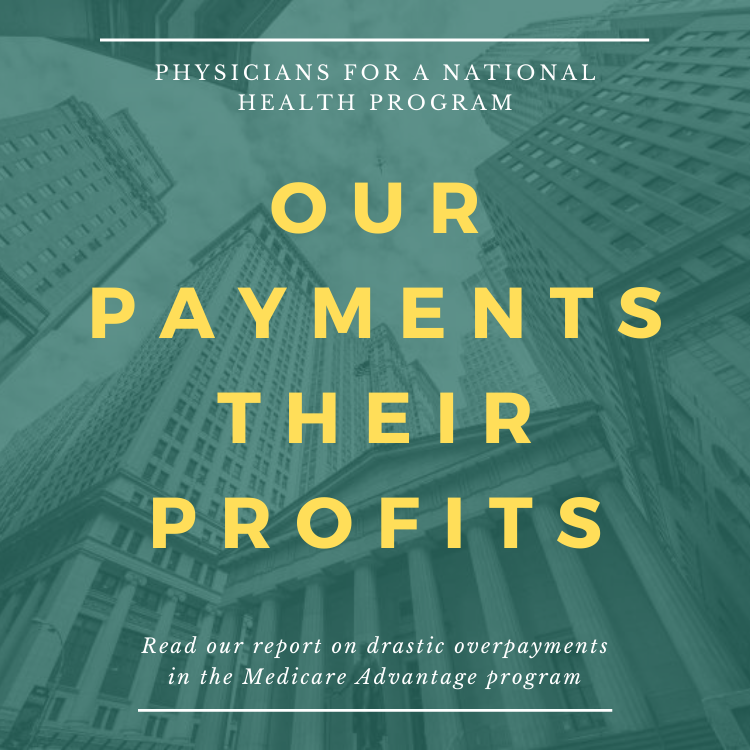By Irene Papanicolas, Ph.D.; Liana R. Woskie, M.Sc.; Ashish K. Jha, M.D., M.P.H.
JAMA, March 13, 2018
Key Points
Question: Why is health care spending in the United States so much greater than in other high-income countries?
Findings: In 2016, the United States spent nearly twice as much as 10 high-income countries on medical care and performed less well on many population health outcomes. Contrary to some explanations for high spending, social spending and health care utilization in the United States did not differ substantially from other high-income nations. Prices of labor and goods, including pharmaceuticals and devices, and administrative costs appeared to be the main drivers of the differences in spending.
Meaning: Efforts targeting utilization alone are unlikely to reduce the growth in health care spending in the United States; a more concerted effort to reduce prices and administrative costs is likely needed.
From the Discussion
The data also suggest that some of the more common explanations about higher health care spending in the United States, such as underinvestment in social programs, the low primary care/specialist mix, the fee-for-service system encouraging high volumes of care, or defensive medicine leading to overutilization, did not appear to be major drivers of the substantially higher US health care spending compared with other high-income countries. Instead, the data suggest that the main driving factors were likely related to prices, including prices of physician and hospital services, pharmaceuticals, and diagnostic tests, which likely also affected access to care. In addition, administrative costs appeared much higher in the United States. These findings indicate that efforts targeting utilization alone are unlikely to reduce the gap in spending between the United States and other high-income countries, and a more concerted effort to reduce prices and administrative costs is likely needed.
***
Comment:
By Don McCanne, M.D.
This consequential study confirms, once again, that the most important contributors to our greater health care spending are high prices and wasteful administrative excesses. It also demonstrates again our underperformance when compared with ten other wealthy nations.
This article is particularly helpful because it also analyzes other factors commonly cited as causes of our high spending, demonstrating that, to the contrary, they are not major drivers of higher spending when compared to other nations. This is really important because having this knowledge is essential when designing policies to correct what is actually wrong with our system.
As an example, our fee-for-service financing has been cited as a driver of high volumes of care which has led to policies that are supposedly designed to replace volume with value which in turn has led to the establishment of intrusive solutions such as accountable care organizations. Yet this study shows that fee-for-service is used in many other nations and has not resulted in health care costs as high as ours. In fact, many of the misguided policy solutions being implemented are actually increasing administrative excesses and increasing total health care spending (e.g., all those computers and their vendors don’t come for free).
There are four editorials accompanying this article, each with a predictable theme (that I perhaps exaggerate to make my points). Ezekiel Emanuel seems hesitant to accept the simple truth of the conclusion and continues to advance the tweaking of Obamacare. Katherine Baicker, supported by Amitabh Chandra, pushes studying minutiae in policy science to meticulously craft new policies to address what are really straightforward problems for which simple solutions already exist. Stephen Parente pushes his typically disconnected thoughts on market-based reform, criticizing the authors for not mapping out “all the important factors that drive this issue.” The editorial that stands out is a tribute to Uwe Reinhardt by Editor in Chief Howard Bauchner and Executive Editor Phil Fontanarosa, reminding us of Reinhardt’s regrets that we tolerate such a great social injustice.
The ideal solution to the problems of high prices and administrative excesses is a well designed single payer system. Not only would that meet the problem of high spending head on, it would also correct many of our other problems – ending uninsurance and underinsurance while reducing inequity, maldistribution of resources, impaired access, and some of the other serious flaws in our system.
JAMA has provided free access to this article. It will be a classic, so it should be downloaded as an important resource for crafting and advocating for sound policies based on actual facts rather than ideology, pipe dreams, and wishing upon stars. When others try to ram through their pet solutions, we can hold up this policy cross constructed of facts to ward off the policy vampires. (Okay, too cute. But this detailed ten page paper plus supplementary material will provide an abundance of solid facts which is the best antidote to policy folly.)
Stay informed! Visit www.pnhp.org/qotd to sign up for daily email updates.

